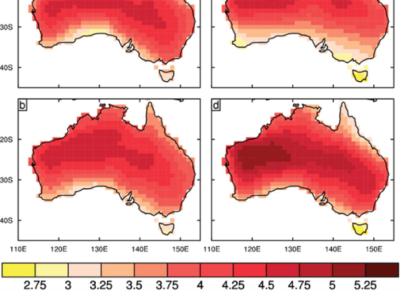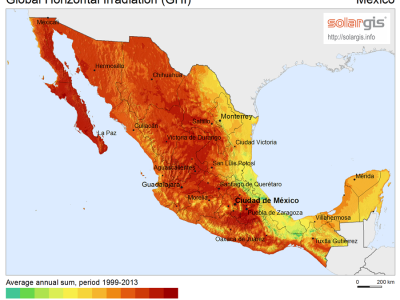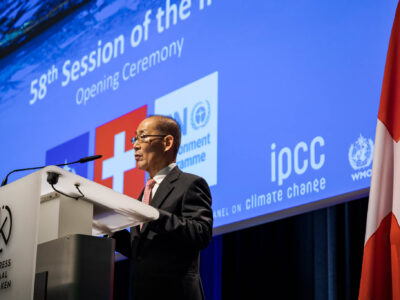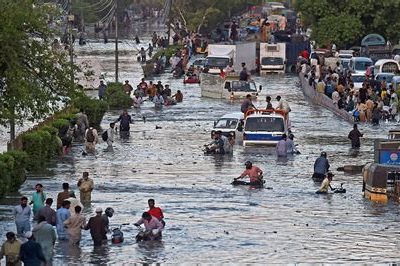International Environmental Law
The Winding Path of Australian Climate Policy
After many travails, the country now seems to be headed in the right direction.
On a per capita basis, Australia’s carbon emissions are even higher than the United States. A decade ago, Australia had a climate tax. That was repealed in 2014, and the ensuing period saw little progress. In the past two years, however, the things have started trending upward after years of inaction by conservative governments. More …
Continue reading “The Winding Path of Australian Climate Policy”
CONTINUE READINGMexico y el Cambio Climático
There is much to celebrate tomorrow on Cinco de Mayo. But probably not Mexican climate policy.
President Andrés Manuel López Obrador (generally known as AMLO) could be described as a left-leaning populist. Like other populist leaders, he has not been friendly to climate action. In November, Mexico ramped up its 2030 commitment under the Paris Agreement from 22% to 35%. That sounds like great news, but there may be less to …
Continue reading “Mexico y el Cambio Climático”
CONTINUE READINGThe Latin American Lithium Industry is at a Crossroads
Policies set now by Argentina, Bolivia and Chile could determine the course of lithium mining—and the fight against climate change.
It may be one of the most overused clichés favored by headline writers, but nonetheless, it is true that the Latin American lithium industry is at a crossroads. The regulatory decisions made by the Governments of Argentina, Bolivia, and Chile in the following months and years will set the course for the lithium industry, …
Continue reading “The Latin American Lithium Industry is at a Crossroads”
CONTINUE READINGThe IPCC Should Just Say 1.5 C is Dead
The big takeaway from the IPCC’s latest report is that we’re still falling behind and must do hard things to catch up. It’s time to communicate that differently.
“There is a rapidly closing window of opportunity to secure a livable and sustainable future for all,” according to the IPCC’s AR6 Synthesis Report. That phrase spoke to the parent in me, though maybe not for the sentimental reason you might think. Most mornings I find myself repeating some version of “there is a rapidly …
Continue reading “The IPCC Should Just Say 1.5 C is Dead”
CONTINUE READINGSolar Geoengineering in the News — Again and Again
An update on the serious and the silly
Solar geoengineering has been prominent in the news lately. It looks like the long-predicted spike of attention to these potential climate responses may finally be starting – with many attendant opportunities for controversy and confusion. For background on solar geoengineering, why it’s important to research, and what the debates over it are, check out various …
Continue reading “Solar Geoengineering in the News — Again and Again”
CONTINUE READINGClimate Policy’s “Plan B”
As the initial top-down approach failed, a new approach to climate policy crystalized.
My last blog post told the story of the original top-down approach to climate policy. It was supposed to feature binding restrictions on carbon emissions in a global treaty and federal legislation. By 2012, it was plain that neither half of this “Plan A” strategy was in the offing. Building on trends that had begun …
Continue reading “Climate Policy’s “Plan B””
CONTINUE READINGClimate Policy at the Turn of the Century: The Death of “Plan A”
The original plan involved top-down global and US emission limits. They never happened.
When the campaign to cut carbon emissions began in the last decade of the 20th Century, there seemed to be a clear path forward. International negotiations would begin with a framework convention, followed by a later global agreement capping carbon emissions. Within the US, Congress would enact legislation cutting carbon emissions. By the end of …
Continue reading “Climate Policy at the Turn of the Century: The Death of “Plan A””
CONTINUE READINGHere’s a New Acronym: CBAM. You’re Going to be Seeing It a Lot.
The EU has taken a major step to pressure global industries to clean up their act.
In December, the EU provisionally adopted a carbon tariff on imports. The official name is the Carbon Border Adjustment Mechanism, or CBAM for short. The purpose of the mechanism is that EU companies, unlike many in other countries, have to pay a price for the carbon emitted in manufacturing. They need a border adjustment to …
Continue reading “Here’s a New Acronym: CBAM. You’re Going to be Seeing It a Lot.”
CONTINUE READINGA Dangerous Disruption
A startup firm proposes to sell dubious carbon credits from stratospheric aerosol injection
Last week, MIT’s “Technology Review” reported that a small startup firm is proposing to spray reflective aerosols in the stratosphere commercially as a climate corrective. (Stratospheric Aerosol Injection or SAI.) Previously announced online in the Google Geoengineering Group, the firm is small and new, operating with a claimed total of $750K of venture financing. They …
Continue reading “A Dangerous Disruption”
CONTINUE READINGLoss and Damage
A deeper dive into the top issue at COP27
As I noted in my last post, this year’s conference of the parties to the climate treaties (COP27) became pretty much a single-issue conference, focused on adaptation and the associated needs for finance – in particular on the urgent need for financial assistance to support adaptation in the Global South, and the lamentable record of …
Continue reading “Loss and Damage”
CONTINUE READING












